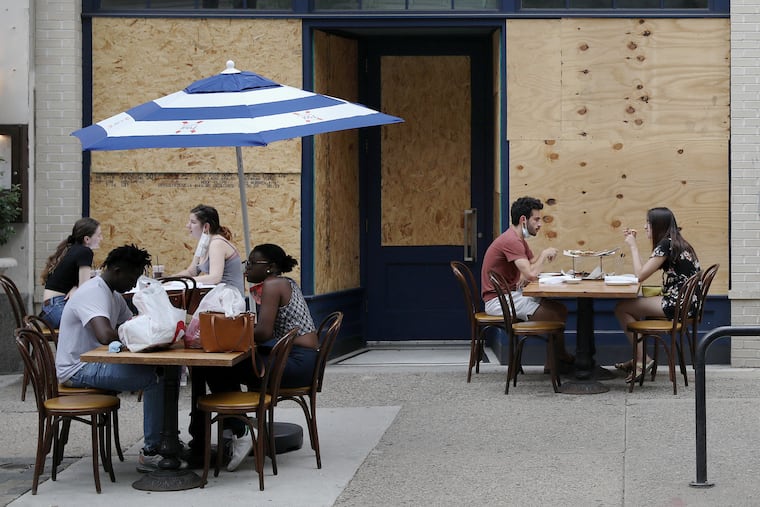Philadelphia needs more contact tracers | Opinion
Even imperfect contact tracing complements mask-wearing, social distancing, and testing to reduce COVID-19 transmission.

Guidelines from health officials suggest Pennsylvania needs about 4,000 contact tracers, including 2,000 for the Philadelphia metro area. Our state has been operating with fewer than 200.
Why is this a problem? Because reopening the economy means more social contact and more opportunities for the coronavirus to spread. In response, we need to rapidly identify both symptomatic and asymptomatic individuals and help them avoid infecting others. Otherwise, what happened in Texas and other states in recent weeks — surges of COVID-19 cases and deaths — could happen here.
What is contact tracing? Contact tracers get in touch with people who test positive for COVID-19 and ask them for names and phone numbers of people with whom they have been in contact. They then track down those who have been exposed to the virus and encourage them to get tested. They may also assist them with the logistics of self-isolation, making sure that they receive necessary medical attention and can get food and medication delivered.
Contact tracing is nothing new. With a history that goes back to tracking the Bubonic plague in the Middle Ages, this low-tech strategy has long been standard practice for reducing the spread of tuberculosis and HIV.
Other states have gotten the message. Massachusetts, for example, has a similar number of recorded COVID-19 cases as Pennsylvania but has thousands, not hundreds, of contact tracers.
Some may argue that technology can solve this problem by offering digital substitutes for human contact tracers. For instance, there are phone apps that keep track of where you’ve been, making it easier for you to remember people with whom you’ve recently interacted. But you still need a human contact tracer to ask you about these social interactions. Other apps use privacy-respecting Bluetooth signals to detect if you are near someone who tested positive, but this requires both you and the infected person to have the same app running, and forcing people to install contact tracing apps on their phones raises concerns about privacy and freedom of choice.
» READ MORE: Contact tracers in N.Y. couldn’t get partygoers to answer the phone, so they issued subpoenas — and it worked
Of course, contact tracing will miss many infections. Not everyone can be reached, nor remember everyone with whom they’ve recently had contact. Some people don’t have phones; others are afraid of being contacted by authorities. And COVID-19 tests aren’t perfect. Even so, research suggests that even imperfect contact tracing complements mask-wearing, social distancing, and testing to help reduce transmission.
» READ MORE: Coronavirus contact tracing raises concerns about digital privacy
Is contact tracing prohibitively expensive? If the state paid 2,000 full-time contact tracers $17 per hour, the cost would run about $13 million per month. That’s a lot of money. But compare this to the $225 million in grants to small businesses affected by the pandemic, and the estimated $5 billion in tax revenue that Pennsylvania is expected to lose through June of next year.
Contact tracing is absolutely necessary to minimize the spread of COVID-19 and reopen the economy responsibly. Let’s use it. Now.
Lyle Ungar is a professor of computer and information science and Angela Duckworth is the Rosa Lee and Egbert Chang professor of psychology at the University of Pennsylvania.